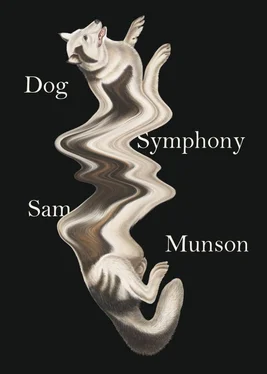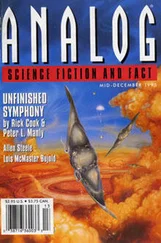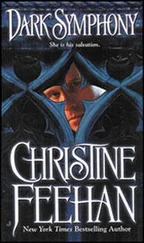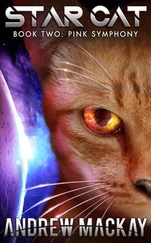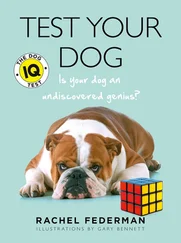It was now far too late to call Ana at home. I decided instead to revise the paper I planned to present at the conference. I laid out my typescript and the reference works I’d brought with me and uncapped my two plastic pens, one green and one blue. As soon as I sat down to work, however, a sudden nausea beset me. I have always hated my profession. Yet I could, I admit, follow no other. Each time I traveled this hatred hardened and worsened. I tried to emend the first paragraph, but found myself on my feet, unpacking my shirts. My last name inked into the collars: Pasternak. No relation to the poet, novelist, and correspondent with Rilke. My namesake never packed or unpacked anything, he had servants. And Rilke wore the same shirt at all times to express his fake poverty and material indifference. I sat down at the desk again, but it was no use. My handwriting crawled across the typed pages, useless and smeared. My head began to throb. I poured cold water onto my hair and face and I changed my socks. I decided to take a long (and mendacious) walk. On my way out, I grabbed my gray jacket and shook it. A heavy metallic chord sounded. This was my shorthand method of checking to see if the jacket contained my keys, a method I had developed in my own apartment. It had never failed me. Below my feet the rooms and corridors of the pension extended left and right, and beyond them, as noted, nocturnal affairs, nocturnal matters and events, stars or their absence, qualia in that family. In the living room, a mouse waited under the piano. (For what?)
I walked along without heed. I have a natural talent for memorizing maps and plans. I believe this is what led me to my profession. All serious students of prison architecture must possess this facility. For weeks prior to my trip I had memorized maps of Buenos Aires. This pathological habit now meant that I felt totally secure in my wanderings, totally secure in my arbitrary decision to head east on José Bonifacio. (And as far as the so-called Spanish language is concerned, I have always spoken it fluently.) At regular intervals along the sidewalk, thin poplar trees pointed upward into the night. The pavement gave up the warmth it had accumulated during the day. After twenty minutes of this heedless walking, I read the street-sign plaque on the nearest building to check my progress. The deep blue plaque, covered with the bitter shine of fired enamel, displayed the simple, lyrical name: Camacuá. That’s where I stood. North of Directorio and the Plaza de la Misericordia. An enormous, crooked eucalyptus tree creaked next to a gabled house with its windows boarded. A quiet, enleafed intersection, nothing much. The air damp and warmish. Through it the drilling whines of mosquitoes passed like current. I missed Ana. In fact, the expression “drilling whines of mosquitoes passed like current” I had stolen from her. Her letters contained numerous rich phrases alongside her lacerating sarcasm. Had she been present, I thought, she could have explained this gabled house or provided a vicious and satirical history of its inhabitants. Though she had lived in Buenos Aires for more than a decade, she regarded almost all Argentines as cryptofascists.
If I kept following Bonifacio east it would end at La Plata, but in that case I could proceed along Carlos Calvo across the river and into the dark Reserva Ecológica, beyond which lay the Atlantic. At the ocean’s edge, the nature preserve breathed, three rough lobes. Lautaro was the next street east, and I could see in the humid night the blue flame of its street sign. After Lautaro would come Carabobo, Pumacahua, Curapaligüé, and Thorne, which took its name from Juan Bautista Thorne, a naval fighter in the wars of the Rosas regime born in my own natal city but to Argentine parents.
The streetlamps hummed in dignified terror. A bullmastiff, night-colored and sleek, slid from behind a red, rusted, cylindrical mailbox and trotted across my path. Some corpuscles slipped through my heart and lungs.
THIS WAS HOW I discovered my error: I thrust my hand automatically into my pocket to fondle the pension keys, and found that coins, centavos, had made the heavy chord I’d heard after shaking my jacket. Now I truly missed Ana. Had it not been so late, I would have tried to track her down and visit her at her apartment, which I had never seen. Instead, I counted the money I had on me — enough to pay for a cheap hotel, I projected, a place where you rented rooms by the hour. I decided to find one, sleep, and head back to the pension after Violeta’s barbiturate trance had come to an end, which I guessed would be sometime before nine so that she could attend to her guests.
I walked on Mitre all the way to Hualfin without seeing another fellow ambler. On the northeast corner, grayish light poured through the windows of a small, coffin-shaped all-night store. Two bowls glimmered near its door, just like those I’d seen at the pension. One filled with cloudy water and one with a black mass whose stench I could detect even from afar. As I got closer I saw the bowl held putrefied, almost liquefied meat. It made me hesitate before entering but I had no choice, I needed cigarettes. And the store itself, well, there was nothing else unusual about it. A radio paneled in artificial pine played a wild, repetitive song at an almost inaudible volume. No words, just hoarse cries, drumbeats, and bells. Surrounded by the gentle, raucous noise, I purchased a pack of Macedonias, a brand I had never smoked, and the clerk blinked morosely at me as he tendered my change. As though he were trying to remember where he had seen me before. Or perhaps he simply wanted to show me the expressive gaze of defeat. In either case a mild, murky benevolence shone (as they say) from his eyes. I wanted to ask him about the water and rotten meat. The possible explanations I formulated — that he was insane or mourning a lost pet — advised silence. Though I did ask him if he knew anyplace cheap to stay that would take a latecomer. He shook his head no. A white dog, a Samoyed, trotted up to the shop doorway and stuck its head through. The clerk’s quiescent, forlorn face opened as the dog drooled. It watched the rotten meat in the steel bowl, and it nosed the water. Then it trotted away without eating or drinking. The fur around its paws stained by anonymous filth. The clerk shrugged. The night sighed on his behalf.
Humid quiet extended from street to street, from avenue to avenue. And the boulevards? Also the boulevards. Burgher adventurism proclaims: foreign localities. And further: aesthetic perfection. If you amble through nocturnal streets, truth or some similar defecated ideal will rise from the sewers or rain from the heavens. I don’t know about all that, but I do know that the air of Caballito was mild and the air of Balvanera was milder. As a result I did not suffer during my aimless walk. Whenever I tired myself out I sat down on a bench or some cement stairs to rest. No one interfered with me. I saw no fellow Homo sapiens other than the clerk. I continued submerged in this night, accompanied by a wedge of dogs. Not strays — they wore collars and tags and displayed the slick, warm-looking pelts of domestic animals, like the one I’d seen slipping from behind the red mailbox. The lead dog, the point, so to speak, was a smoke-gray Great Dane with docked ears (shaped like hatchet blades). His head was almost as high as a parking meter he passed. His subaltern dogs (I counted six) kept formation in perfect silence, except for the harmonic jingling of their tags. They followed me — or I followed them — northeast along Morón where, in front of every doorway, commercial or residential, I saw the same two objects: metal bowls. One filled with water and the other with meat. In most cases the deep pink of muscle, but also present were organ meats. Luminous and concentrated darkness. The wandering dogs stopped to eat and drink in regal quiet. Their syncopated lapping rippled through the night. They did not fight over the meat but ate as interior ministers might eat with grave calculation. At certain doorways the meat had been left out and ignored by the dogs long enough to start rotting, to have drawn a wriggling coat of flies, to emit a stink I could detect from far away, like the meat in the all-night store’s bowl.
Читать дальше
